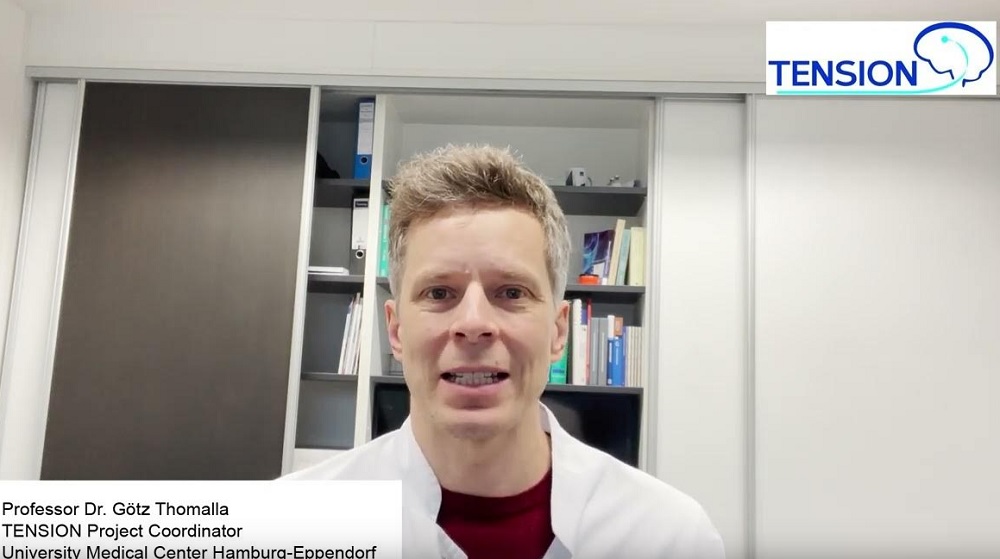
TENSION is a large international study that was launched in 2018 with the hope to extend the benefits of a treatment called mechanical thrombectomy to stroke patients who are not currently offered this treatment option.
Thrombectomy is a treatment for certain types of acute ischaemic stroke. It uses very small devices to breakdown and remove the clot from the blood vessel in the brain. It can drastically reduce the level of post-stroke disability by restoring blood flow and therefore limits brain damage.
So far, thrombectomy trials have included highly selected groups of stroke patients – those with only small blood infarcts in the brain. This means that thrombectomy treated is limited and only available to small number of people.
The TENSION project aimed to determine if thrombectomy was safe to use in patients who had a severe stroke i.e. where a large blood clot had caused the stroke.
The trial results which were simultaneously unveiled at the World Stroke Congress and published in The Lancet, found that using thrombectomy can significantly help patients with severe strokes caused by blocked blood vessels in the brain. The study’s findings are likely to pave the way for broader consideration of this approach for a greater number of patients in the future.
“This is great news and if the results drives treatment guidelines updates, more patients should experience improved outcomes after a severe stroke” says Prof Dr Götz Thomalla, Principal Investigator of the study.
TENSION has received funding from the European Union’s Horizon 2020 research and innovation programme under grant agreement No 754640.

Funded by the EU





